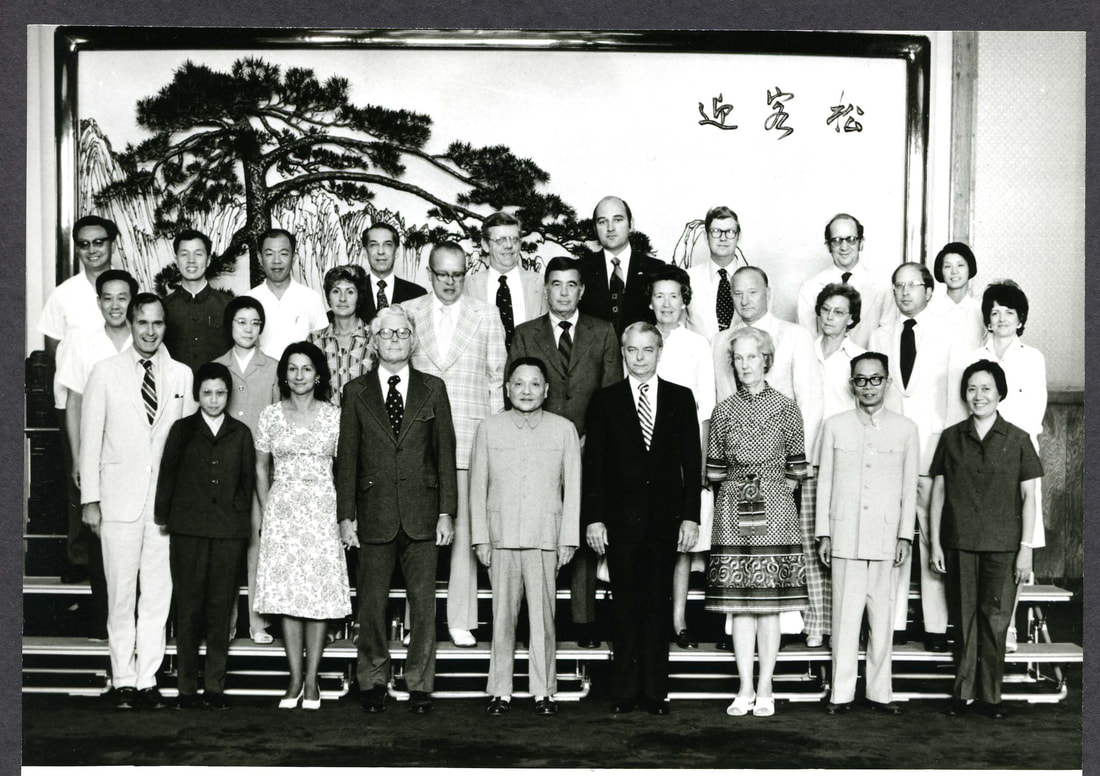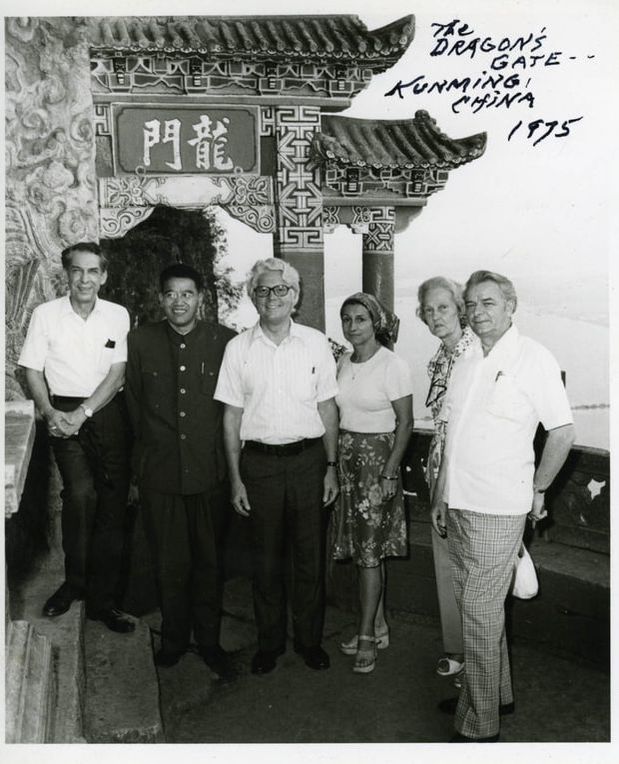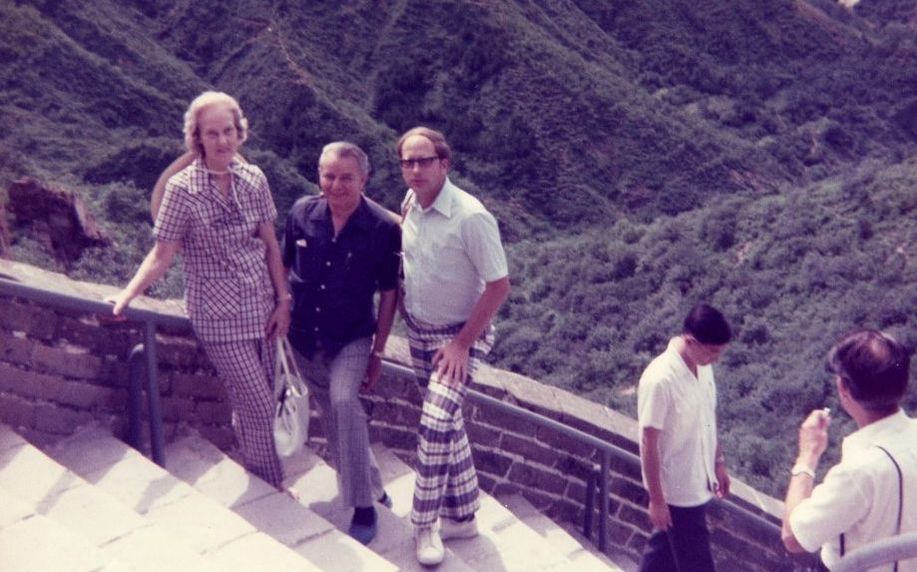After the normalization of relations between the US and China in 1972, China’s Institute of Foreign Affairs extended an invitation through President Ford to members of Congress to visit the People’s Republic of China. Senator Byrd, along with his wife Erma, Senators Sam Nunn (D-GA) and James Pearson (R-KS), and three members of the House of Representatives, including John Slack (D-WV), went on the trip. For ten days in August of 1975, the delegation toured major urban hubs, including Beijing and Shanghai, as well as agricultural areas. Senator Byrd spent much of his time on the delegation trip studying Chinese life and culture and gaining respect for their organized and hardworking regime of hard work. Upon his return, Senator Byrd reported to President Ford that “a recognition of the necessity for reevaluation of our attitude and posture toward the PRC…has been made more clear to me.” Byrd concluded by saying “I must say I went there somewhat antagonistic. I came back impressed. They are a hard-working people. They appear to have solved their food problem and appear to give their people a basic level of health care.”  Members of the 1975 CODEL to China meeting with Deng Xiaoping, future leader of the People's Republic of China (center, first row). Members of the delegation in the photograph include George H.W. Bush (front row, left), Senator Byrd and Mrs. Byrd (front row, 4th and 3rd from right), Senator Sam Nunn (2nd from right, middle row), Senator James Pearson (4th from right, middle row), and Congressman John Slack (6th from right, middle row). A 33-page document, bound in black leather in the Robert C. Byrd Congressional Papers collection contains Senator Byrd’s account of his second trip to the PRC in 1980. The report includes day-by-day summaries of Byrd’s meetings with key Chinese leaders including Premier Hua Guofeng and Executive Vice Premier Zhao Ziyang. In the report Byrd reflected on the changes he observed in China since his first trip five years earlier and the several reforms that had been enacted after the death of Mao Zedong in 1976.
The overarching change to Chinese society since 1975, according to Senator Byrd, was the emergence of a more practical market-based approach to problem solving. Byrd mentions “the introduction of incentives into the economy – on a very limited basis…the interest in modern management techniques, and the granting of increased autonomy to the local and provincial levels and to various enterprises” as evidence of this change. The Senator also reported that “residents of the area were selling their produce and wares,” an example of the increased levels of autonomy to business he observed in Yunnan Province. When visiting a commune outside of Beijing, Senator Byrd was impressed to find the emphasis on increasing production was no longer about ideological rhetoric and instead practical incentives. He noted specifically an increased “willingness and desire to learn from the experience and knowledge of others” among the people. Senator Byrd also met with Chinese leaders and discussed their worries about Ronald Reagan’s presidential campaign rhetoric, which concerned possible changes to U.S. policy towards China and Taiwan. Chinese leaders were anxious over the rhetoric and viewed Reagan’s statements as anti-Communist and anti-China. Senator Byrd used the CODEL as an avenue to reassure the Chinese that positive relations between the US and China were a desire in Congress and among the American people, despite the sentiments of the incoming president. In response, Premier Hua Guofeng stated that China did not view its relationship with the US to be a passing façade but a necessary goal for both countries’ long term interests. Hua Guofeng concluded his meeting with Senator Byrd by proclaiming that isolationism could no longer exist in a globalized world, but that Asia, the US, and Western Europe must come together to face the opposing forces they held in common. Byrd shared this sentiment and concluded his report by stating “It would be short-sighted and irresponsible – clearly contrary to U.S. interests – to attempt to turn back the clock in our relations with the PRC… to alter the relationship between the U.S. and China would undermine the remarkable progress we have made.” Comments are closed.
|
Welcome to the Byrd Center Blog! We share content here including research from our archival collections, articles from our director, and information on upcoming events.
Categories
All
Archives
July 2023
|
Our Mission: |
The Byrd Center advances representative democracy by promoting a better understanding of the United States Congress and the Constitution through programs and research that engage citizens.
|
Copyright © Robert C. Byrd Center for Congressional History and Education
|



 RSS Feed
RSS Feed
